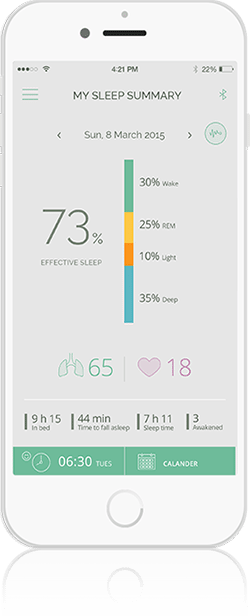 Ramat Gan, Israel-based EarlySense, which makes a passive and contactless bedside monitor that continuously measures respiration rate, heart rate, and motion, has raised $25 million in new funding in a round led by Bank Hapoalim, Israel’s largest bank. Pitango Venture Capital, JK&B Capital, and other previous investors also contributed to the round.
Ramat Gan, Israel-based EarlySense, which makes a passive and contactless bedside monitor that continuously measures respiration rate, heart rate, and motion, has raised $25 million in new funding in a round led by Bank Hapoalim, Israel’s largest bank. Pitango Venture Capital, JK&B Capital, and other previous investors also contributed to the round.
“We are experiencing exponential growth in the medical space and this funding enables us to continue to grow as well as launch consumer digital health offerings based on our medically proven technology," Avner Halperin, CEO of EarlySense, said in a statement. “More than one hundred thousand patients will be monitored with our sensors this year, allowing for better care. There is a real need to bring these capabilities to individuals and their family members at home. In expanding the reach of EarlySense, we can potentially impact millions of lives in both the medical and wellness markets.”
This brings the company’s total funding to $100 million, including a strategic investment from Samsung. Samsung is marketing a version of EarlySense’s first direct-to-consumer device, a sleep monitoring device called myEarlySense, marketed by Samsung under the name Sleep Sense. Sleep Sense was supposed to be available in the US by the end of 2015, but doesn't appear to be available yet.
In January, EarlySense partnered with iFit to provide the technology for another D2C offering, a sleep sensor that iFit provides to users of its fitness tracking platform.
The movement of EarlySense sensors from the hospital into the home is the beginning of an IoT play that will eventually see the sleep sensor connected to lighting, heating, and cooling in a home, turning the TV off when the user falls asleep or the coffee maker on when they wake up, according to the company's website.
“We see a huge value in our technology in the home consumer space or digital health space," Halperin told MobiHealthNews in January. "This technology that was invented and proven in the toughest environment of the hospitals and home care institutions; now we’ve proven that that same capability can be brought into the home. And the fact that this is completely contactless, the person has no need to change anything in their lifestyle is a very attractive proposition for empowering multiple applications in terms of smart appliances, improving your sleep, allowing people to age in the home in a safe, convenient, and dignified way, keeping an eye on children. And all that in a collected analysis, allowing you to improve and have your home respond to how you’re doing."
Earlier this month, EarlySense received a new FDA clearance for an “EarlySense Insight System”. The company declined to comment at this time on the nature of the filing.













